Why does the Global Ocean Treaty require everyone’s support worldwide?
Overfishing, plastic pollution, ocean ecosystem destruction, melting of glaciers, all these catastrophic risks our oceans are facing can afford not a second delay of actions for solutions and new possibilities.
The final round of negotiations for a Global Ocean Treaty will take place from March 7 to 18 in New York. These negotiations are crucial for the fate of our oceans, and governments must show great ambition to prove they are serious about their commitments. Join us to push for world leaders to move from words to action!
Our multi-talented Asian lady deckhand, Huang Yei-Hsuan (also known as Dolphin), witnessed the destruction and impacts our oceans have been facing during her seven-year of service on Greenpeace ships. From her first person perspective, she calls for worldwide support for our ocean protection.
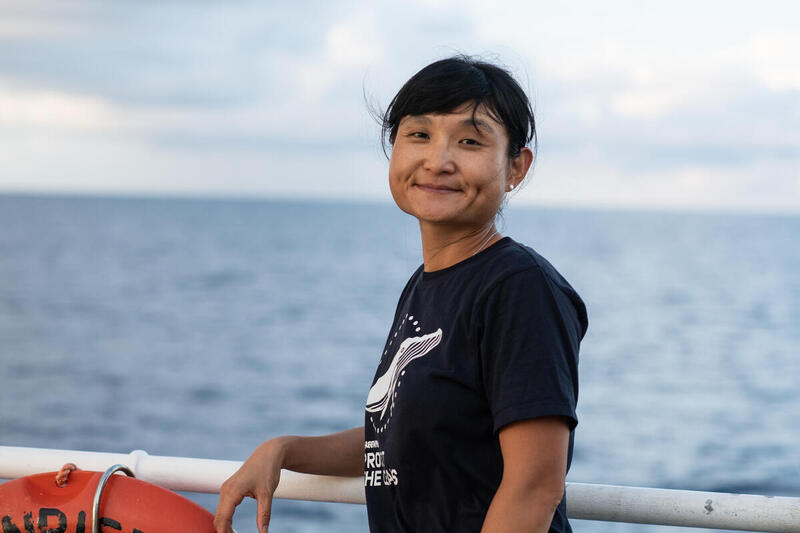
The Fourth Session of the Intergovernmental Conference (IGC4) on Global Ocean Treaty will be conducted in March 2022. The discussion results will determine whether the world could reach a global target to conserve at least 30% of oceans worldwide by 2030 (30×30). We now reach a critical time in the ocean protection timeline. Greenpeace has received nearly 5 million people’s signed pledge in support for global ocean protection. Dolphin is sharing her experience here and inviting you to advocate our international green initiatives to sustain a strong Global Ocean Treaty.
- Learn more about the Global Ocean Treaty, READ: Antarctica shows everything is possible when we work together – now we need leaders to make history again
“Dolphin” Huang Yei-Hsuan shares her seven-year journey on Greenpeace ships
“Out of my passion on sea, I’ve been working frontline for ocean protection at Greenpeace. We’ve brought to the public our first person witness of the destruction in oceans, a driver for supporting ocean protection acts,” said Huang Yei-Hsuan.
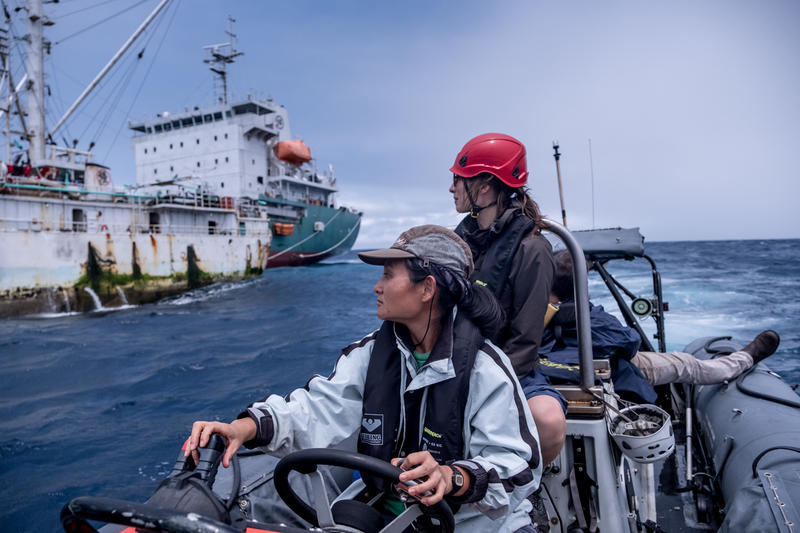
Known as “Dolphin”, Huang was born and raised in Taiwan. She used to volunteer for Kuroshio Ocean Education Foundation, and was involved in whales and dolphins beaching saving actions. Since then, she decided to devote herself to environmental education and ocean protection work. Prior to joining Greenpeace as a full-time crew member, she served as a volunteer of our ocean advocacy related actions.
“I conducted research work on whales, and was impressed by the beauty of the oceans. That inspired me to get onboard at Greenpeace’s vessel as a frontline activist. I could then take immediate actions to ocean protection for any risks I saw,” Dolphin said. She served as an assistant chef during her journey with Rainbow Warrior, and turned to be a deckhand of Greenpeace from 2015, embarking on her dream career in the sea.
- Read about: Greenpeace ships
Diminishing aquatic lives, most enormous ocean threats ever
“We could see many whales during our journey in 2015 and 2016, but we could not find any of them however hard we tried when we sailed during February and March 2021. Resources of the sea have been heavily depleted. Aquatic lives, not only fishes but also whales and others, are facing the most enormous threats ever.”
Dolphin recalled her most remarkable journey with Greenpeace for seven years, is the Protect The Oceans Expedition to the Antarctic in 2019. That was the time when Dolphin assisted the Greenpeace investigation team for our field study on penguin and aquatic life sampling in the sea. “The Antarctic is not supposed to be interfered much by human activities, but what I saw there were lots of vessels and visitors-filled small islands and lots of paddlers next to whales. All these are homes to penguins. Even at the distant Antarctica the ocean is not immune to human interventions.”
In 2022, Greenpeace’s Protect the Oceans team is at the Antarctic again. We released the latest findings of our field study on penguins, to collect more robust scientific evidence about the ocean crisis and bring the results to attention at the United Nations Conference on Global Ocean Treaty.
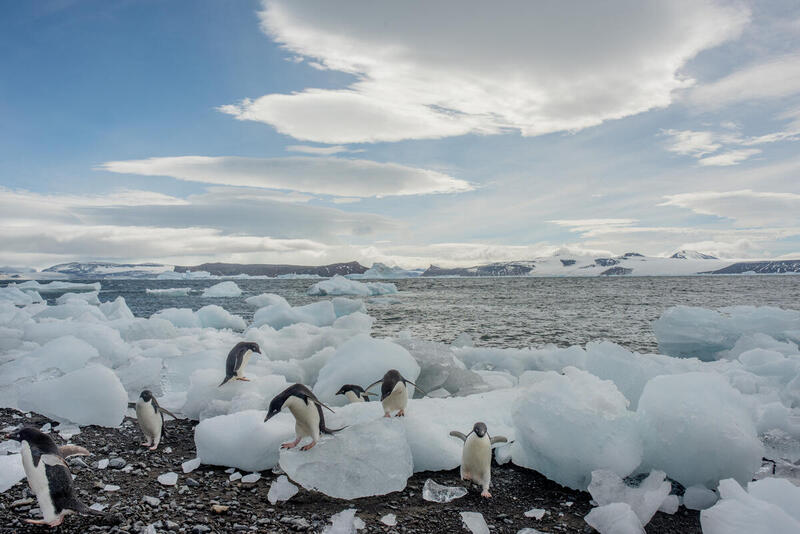
Scientists participating in the journey discovered a breeding colony of gentoo penguins further south than ever recorded – a sign of the impact of the climate crisis transforming this region – where until recently it was far too icy for the more temperate Gentoo penguin to successfully raise chicks. The climate crisis and human activities are posing threats to penguins’ survival.
Oceans worldwide are interconnected, so are destructions
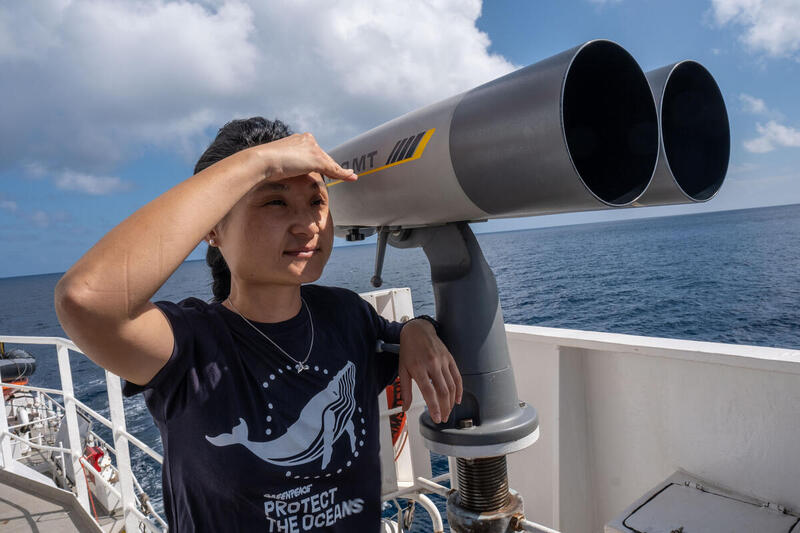
Less than 8% of oceans in the world are protected, among them 6.93% belong to national sea areas, meaning only 0.72% of high seas are established as protected areas. While most nations concern their own areas only, about 61% of high seas are left unprotected, posing threats to numerous aquatic lives there. In reality, oceans are interconnected and so is destruction. No country could remain intanted given the increasing impacts of the ocean crisis.
Speaking regretfully, “perhaps the Antarctic can appear too distant to us, yet when we reached there, we found traces of our daily activities. Giant fishing tools have been carried to the Antarctic by sea current. It was an overwhelming sight seeing them afloat.” “Ghost nets“ could have trapped aquatic lives passing by, leaving them struggling to their deaths. “We found microplastics from the water sample we collected on the Antarctic. The destructive impacts of human activities are far reaching in the world.”
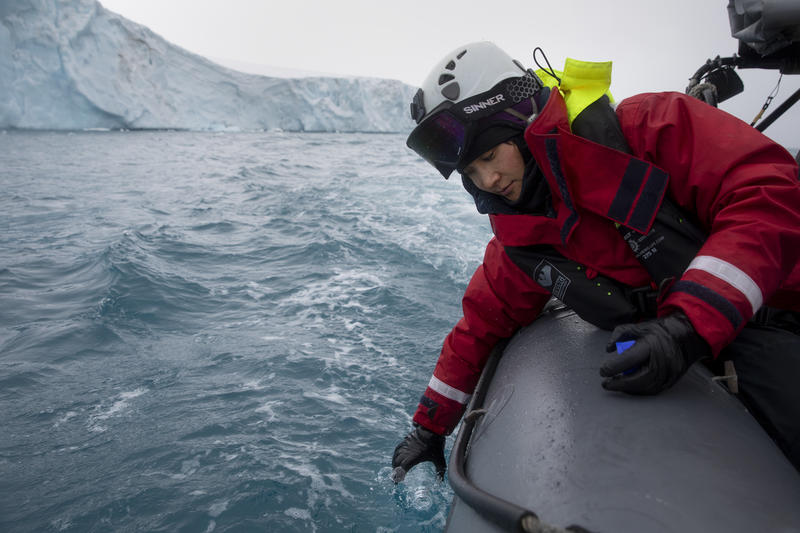
Greenpeace has been advocating for years the creation of a strong Global Ocean Treaty at the UN to agree to an ambitious target to protect at least 30% of the world’s oceans by 2030. We need urgent action on climate change and we urgently need a Global Ocean Treaty agreed at the UN when world leaders meet in March. That’s the critical first step to creating proper protected areas – ocean sanctuaries – which are free from harmful human activity and give nature a chance to heal, and in turn help our planet to avoid the worst impacts of climate change.
Protect the Oceans – You Are Wanted!
“My ideal ocean is that aquatic life could live free of human interference,” Dolphin mentioned her vision as a Greenpace deckhand living with the oceans for years. She suggested we could take small steps in our daily life for ocean conservation. “Reduce the use of plastic in our lives, buy environmentally-friendly seafood. A small change in every one’s habit can make a big difference.”
Dolphin has held tight on her position in ocean conservation, in hope to encourage more voices in support of the initiative. And she is grateful for the support you and many more have given all this time. “Your support is crucial to our environmental acts in the sea. Your generous donation is funding our vessel maintenance, scientific equipment, and others. We feel much grateful for everyone’s support, which is substantial to sustain our research and actions on protecting our environment at the frontline, and acting immediately when needed.”
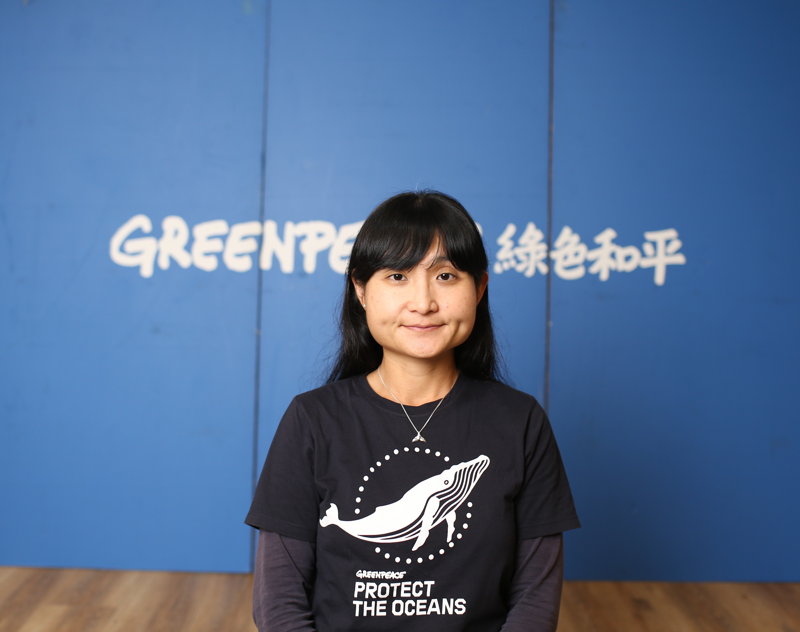
Together we’ve built a close to five-million-strong global movement to protect the oceans, and now it’s time to make it count. To protect the Antarctic and all the world’s oceans, we need a strong Global Ocean Treaty – and to make that happen, we need your help in getting as many people as possible to put pressure on world leaders to make the right decisions.
The final round of negotiations for a Global Ocean Treaty will take place from March 7 to 18 in New York. These negotiations are crucial for the fate of our oceans, and governments must show great ambition to prove they are serious about their commitments. Join us to push for world leaders to move from words to action! Join us along with nearly 5 million supporters to a strong Global Ocean Treaty around the world!


